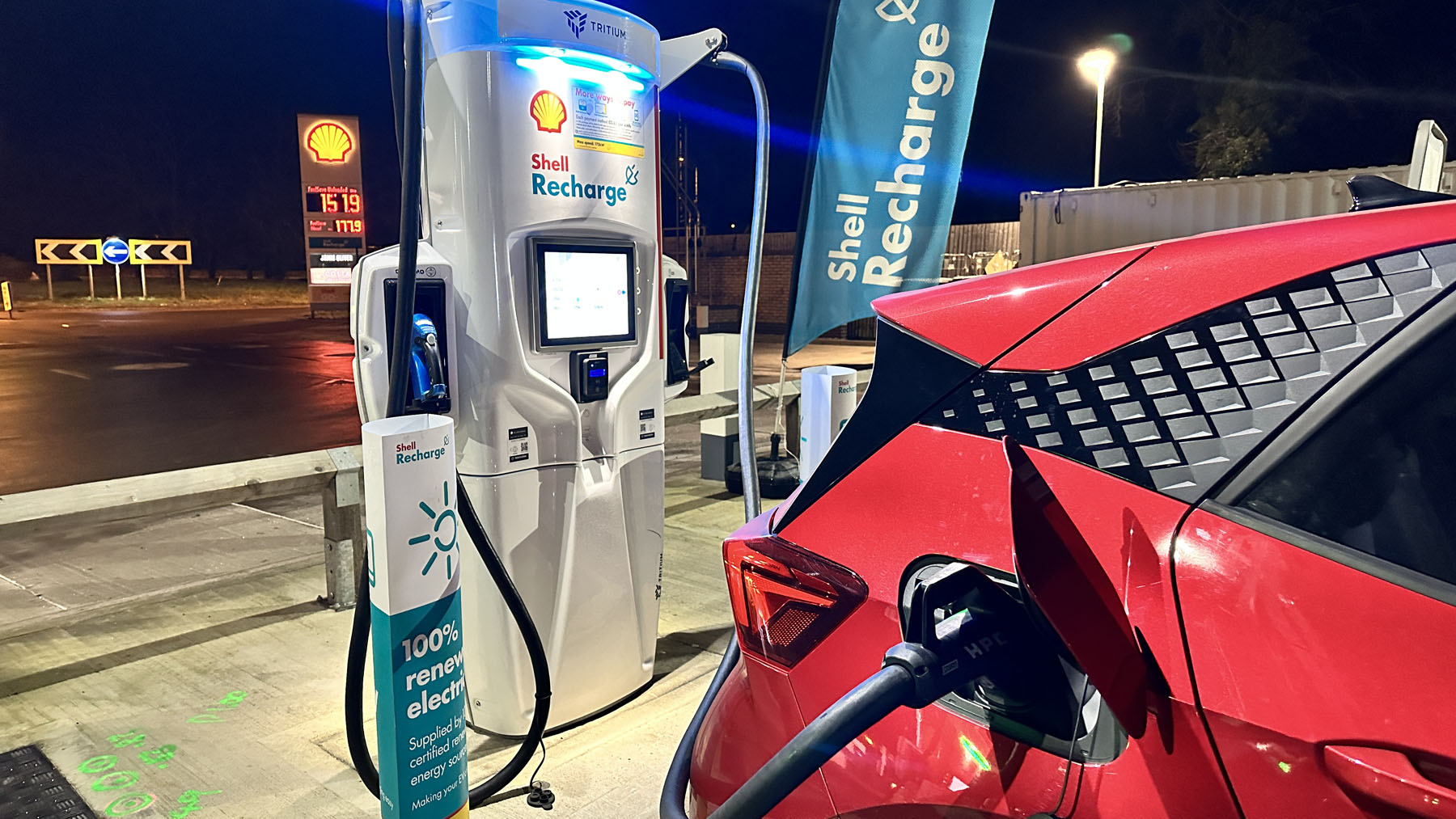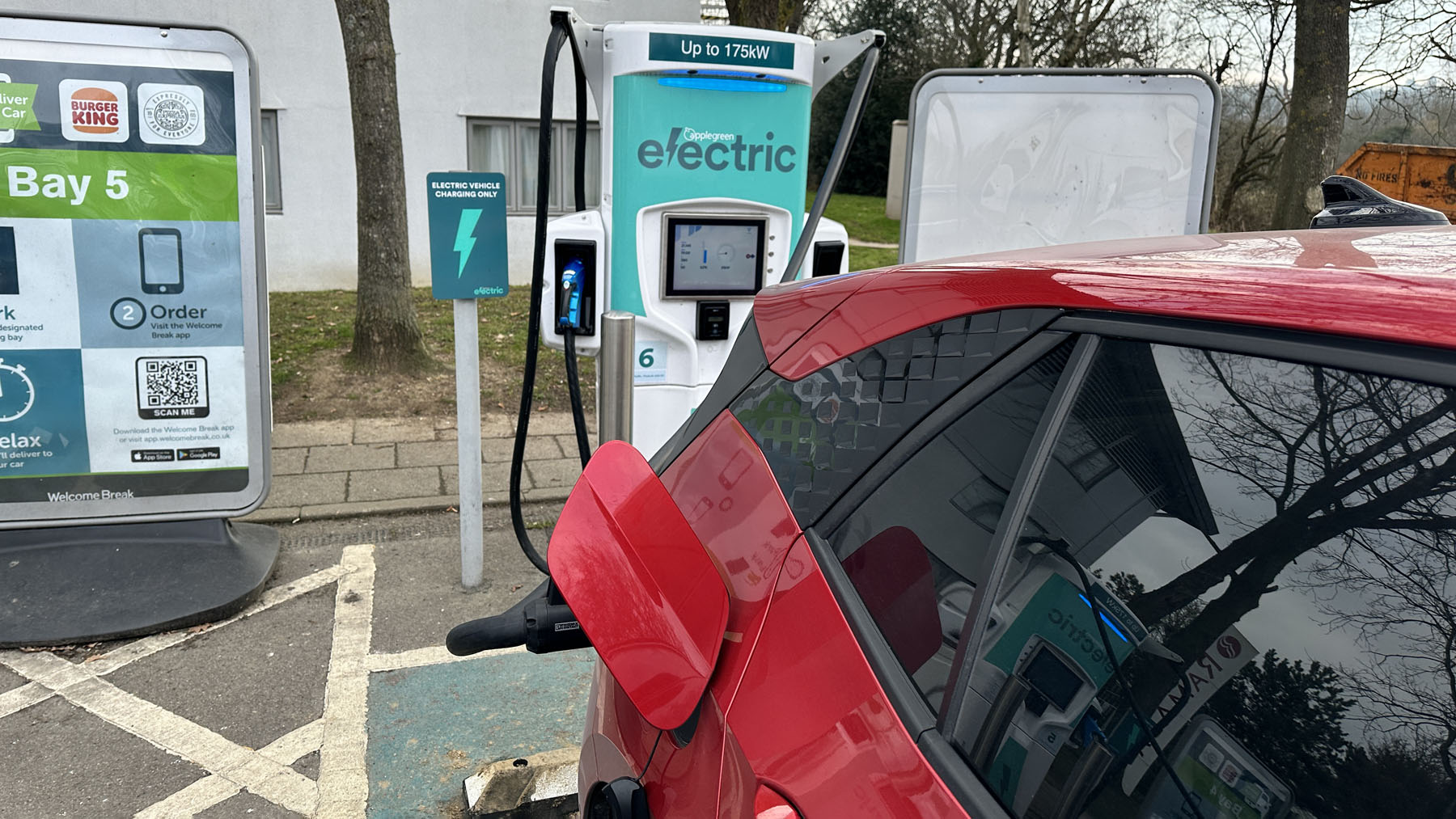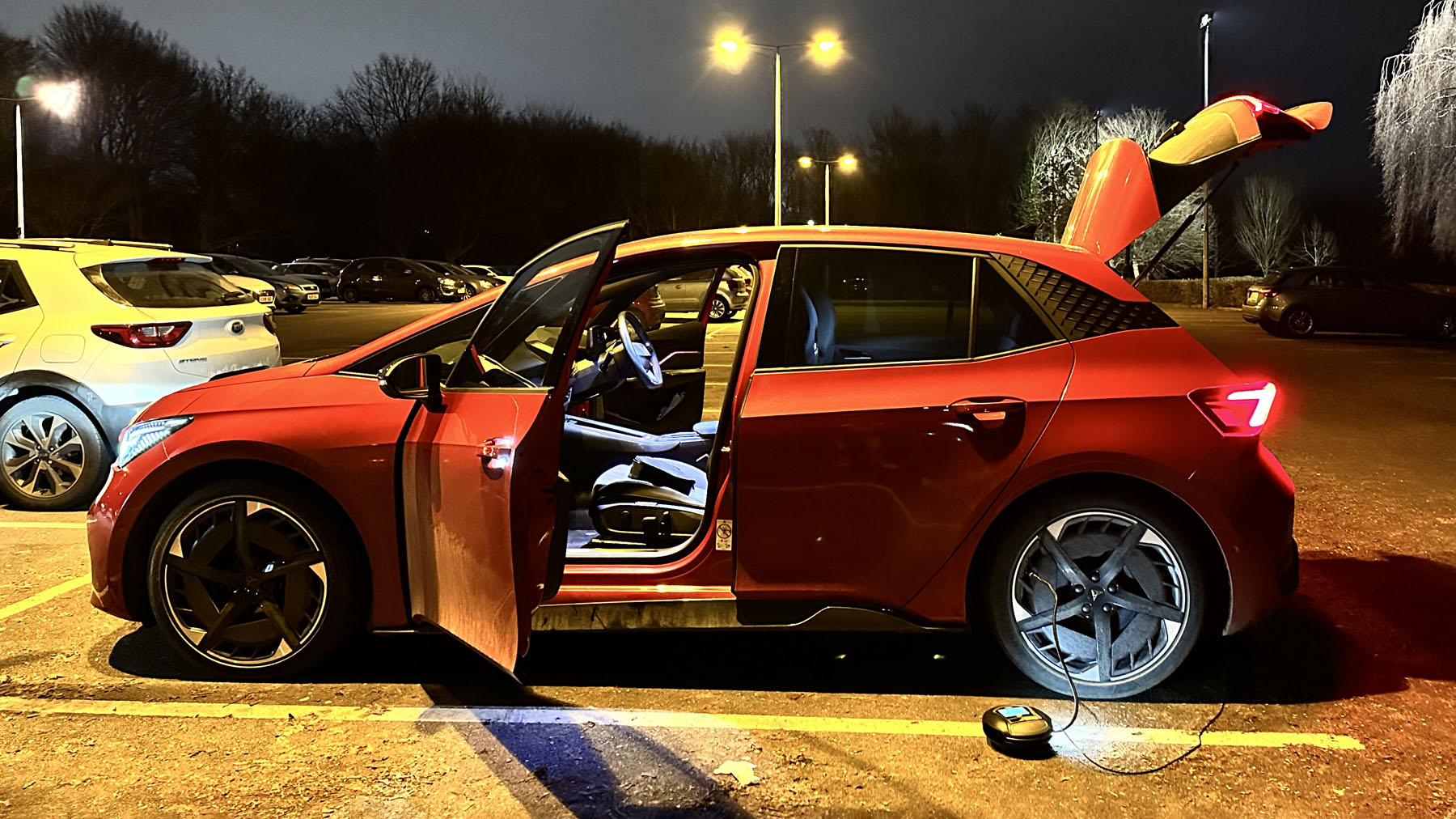
Want to test the range and charging ability of your electric car? How about 24 solid hours around the hellscape of the M25 London Orbital?
I know, I know, it feels like all EV owners ever want to talk about is range and charging, but it’s a real thing if you regularly venture past the real-world ability. Like your grandparents and the weather, the topic will always crop up. So we’ll start with the Born basics. This 77kWh version has a permanent magnet synchronous electric motor driving the rear wheels. It produces 228bhp and 229lb ft of torque, punting it to 62mph from rest in bang on seven seconds and a largely irrelevant 99mph top speed. So nippy rather than an instant facelift.
Under the floor is an 82kWh battery with reserves in place that mean there’s 77kWh of useable chemistry available to actually drive the car, which would, if you lived in some sort of European laboratory filled with scientists telling you to slow down, produce 341 miles of range on the official WLTP cycle. Which, as we all know, is largely unachievable if you’re an actual real person. I’ve been getting 3.2/3.3miles per kWh of energy, which, when you multiply that by the useable battery capacity (77kWh) would give a real-world figure of 246.4 - 254 miles. Although that’s been in winter, and low temps - when it was warmer, I was getting 280 because batteries prefer to be toasty warm. But I also drive it like a normal car, and have air-con and heaters on whenever I fancy.
This month, we decided to test six EVs around the M25 motorway for a solid 24 hours to see who could get the furthest - while using public chargers - and just by turning off the air conditioning and cruising at 65mph rather than 70, the Born managed an easy 4.2mi/kWh. That means a real range of 323.3miles. Now that’s more like it. And makes you wonder why someone doesn’t immediately try an invent a more efficient air con system for EVs. At zero degrees without the heating on, the Born gets uncomfortable, but at least it keeps you awake at 3.30am…
The other aspect of the test obviously involved the pit stops, aka charging strategy; efficiency would only make the most sense if you could get charged and back out on the road. And with 135kW peak DC rapid charging, the Born was definitely one of the less capable cars in the test - especially compared to the Tesla Model 3 and Hyundai Ioniq 6. On a big enough charger (one that can cope with more than 135kW), you should see a 10 to 80 per cent charge in 33 minutes, knocking out 28 to 224 miles, which is good, but not spectacular. Running the Born down to the low teens of percentage battery left and hooking it up to a 175kW charger… we got a max of 111kW. Which is the most I’ve ever seen out of it on any charger. So the peak feels a bit far off. But, the good news is that although the charging graph sees a steady decline in charging performance the fuller the battery gets, it does seem to keep charging consistently. So it was still pulling 75kW+ at 80% charged. That meant 50 minutes-ish to get the car back up and going for another 4.5 hours and 230-240 miles of driving. Yes, an ICE car would be quicker to top off, but 45 to 50 minutes off every 4.5 hours? It’s not that much of a bind, and probably a lot safer. We didn’t plan specific charging, either - just turned up to the chargers we had found on an app before we started - and plugged in. We managed (as you can read in the full feature by grabbing a copy of Top Gear magazine) 1,102 miles in 24 hours. No broken chargers and - shock, horror! - no queues. Only expensive public charging and hard running meant it cost roughly £219 at an average of 4.0mi/kWh, but if I’d done those miles on home charging at 35p/Kw, it would be more like £97. Beware public charging costs and all that…
The thing here is that I’ve had all sorts of charging experiences since I’ve been running EVs as daily drivers - and I’ve had a few now - and they have varied from seamless to soul-destroying. Cars that don’t charge, chargers that don’t provide what they say they should, the odd queue (though never for long, it has to be said). But I’ve also had far more journeys that started with a full battery from home and never needed anything else, and 75 per cent of public charges where I just showed up, plugged in, tapped a card and had 20 minutes phone dawdling. Truth is, it’s more complicated than petrol or diesel because it’s new, and the communication around the systems can be appalling. So many people I meet simply don’t know the basics, and it makes for a worse experience for them. Similarly, people who constantly shout about EVs being useless seem to never have experienced one. As ever, it’s in the middle; it’s nowhere near as bad as the naysayers would have you believe, and not quite as seamless as the evangelists crow about. But one thing’s for sure; the cars are getting better and easier to use rapidly - and the Born is one of them.
As an aside, I’ve also been playing with alternative charging. I’m in a rental property at the moment without home charging, but the workshop next door has a commado plug (the blue interlocking ones you find in industrial units) earthed for 32amps. I bought a decent metered 32a cable off t’internet, and bingo - ‘dumb’ 30mph charging. But you do have to check that the appropriate earthing is in place or you could set fire to stuff. Luckily, the cable I bought also has a knock-down feature, so you can charge at lower amperages. The meter shows how many kWh I’ve used, and I pay that way. I can even schedule charging via the Born, so do so at night. Worth noting that a decent home wallbox has all sorts of surge protection and clever stuff built-in, so this is more of a short-term solution, but interesting.
Featured

Trending this week
- Top Gear Advice
Here are 19 brilliant cars that are cheaper than you think






